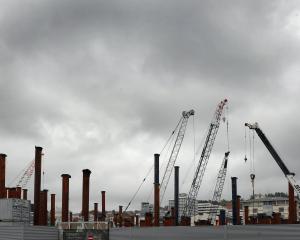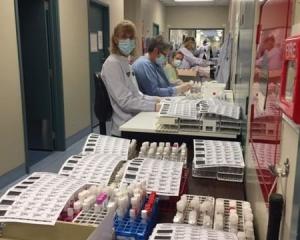Dunedin Hospital’s emergency department needs more administrative support to improve patient safety, clinicians say.
The quality of patient care in the hospital has come under close scrutiny in recent weeks, following the release of two Health and Disability Commissioner reports into separate 2019 deaths of patients.
Each report recommended that the director of proceedings considered the possibility that the SDHB face prosecution over the deaths, and in each case miscommunication and questionable record-keeping were highlighted by the commissioner.
In one case, she called for an audit of clinical notes.
In a briefing to the Southern District Health Board’s hospital advisory committee, clinical director Rich Stephenson said only 30% of people who arrived at ED were admitted, but that 30% tended to be older and have more complex health needs.
It took time to record those details, and time-poor staff in such a pressurised environment would benefit from greater support.
Dr Stephenson told the committee the department needed a third registrar on night shifts, an extra senior medical officer, and to fill a full-time administrative support role.
"We have electronic note-writing and an audit is something that would be useful," Dr Stephenson said.
"One of the reasons why we need administrative support is so that we can manage things like quality improvement and in particular audits ... I want to create sustaining, self-managing quality improvement frameworks and it’s a challenge if I and all the other SMOs have to do [this] with Xcel spreadsheets because we don’t have any admin support."
However, proper note-taking was an essential part of quality medical care and it needed to be audited, Dr Stephenson said.
The emergency department should only cater for patients for whom it could add value to their care and not be treating people who could be seen by primary care, the after-hours clinic or by general medical departments during the day, he said.
"Many hospitals manage their patient flow better than we do and we should consider following them."
Despite the department’s current travails, initiatives such as the new medical assessment unit in Dunedin Hospital were a step forward and he was optimistic improvements in ED’s performance could be made, Dr Stephenson said.
Last year, the department’s health and safety officer placed a provisional improvement notice on the ED, requesting improvements to boost patient and staff safety.
WorkSafe New Zealand recently lifted the PIN but intended to monitor progress.
The department, which seldom achieves the Ministry of Health target for patients to be seen within six hours, has also been hard hit by bed block issues elsewhere in the hospital, when there has been no space on wards for patients referred by the ED for hospital-level care.
SDHB chairman Pete Hodgson said Dr Stephenson’s comments reiterated the importance of ongoing work by an SDHB team to improve patient flow through the hospital.
"Patient flow will be part of the solution; I want to call that out one more time.
"We have a pandemic coming and our discharge figures haven’t shifted in a year and it is time that they did."












